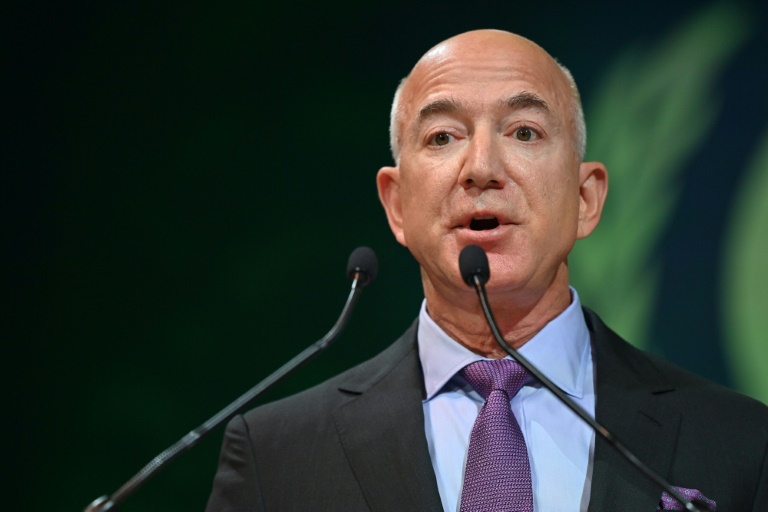Blue Origin’s Upcoming Orbital Launch: Setting the Stage for a New Frontier
As Blue Origin prepares for its inaugural orbital launch, excitement builds over the potential implications for space travel and exploration. Founded by Jeff Bezos in 2000, Blue Origin has steadily advanced its technologies and ambitions, culminating in this significant milestone that could redefine the future of private spaceflight. This article dives into what we can expect from Blue Origin’s upcoming launch, the broader impact on the aerospace industry, and how Jeff Bezos envisions a new era of space exploration.
What to Expect from Blue Origin’s Orbital Launch
The anticipation surrounding Blue Origin’s orbital launch is palpable. After years of suborbital flights with New Shepard, which primarily focused on tourism and research, the company is ready to take a giant leap into the realm of orbital missions. Here’s what we can expect:
- Launch Vehicle: Blue Origin plans to use the New Glenn rocket, a heavy-lift launch vehicle designed to carry satellites and other payloads into orbit. With a height of 98 meters, New Glenn is expected to provide substantial thrust, boasting multiple engines that ensure reliability and power.
- Payload Capacity: New Glenn can deliver payloads of up to 45 metric tons to low Earth orbit (LEO), making it a competitive option for satellite deployment and other commercial ventures in space.
- Launch Site: The launch is set to take place at the Cape Canaveral Space Force Station in Florida, a historic site that has hosted numerous significant space missions over the years.
- Mission Objectives: The inaugural flight aims to demonstrate the rocket’s capabilities, focusing on payload delivery to orbit. This mission will set the groundwork for future commercial partnerships and scientific endeavors.
The Vision Behind Blue Origin
Jeff Bezos has always emphasized the importance of space exploration for humanity’s future. His vision for Blue Origin extends beyond mere profit; he believes that access to space is crucial for the survival and expansion of human civilization. As Bezos famously stated, “We must go to space to save Earth.” This philosophy drives the company’s ambitions, with the upcoming launch representing not only a technological milestone but also a step towards a more sustainable future.
The Competitive Landscape of Private Spaceflight
Blue Origin’s upcoming orbital launch will place it in direct competition with other industry giants like SpaceX and Virgin Galactic. Each company has carved out its niche in the burgeoning private spaceflight sector. Here’s how they stack up:
- SpaceX: Led by Elon Musk, SpaceX has already established itself with successful orbital missions and the Falcon 9 rocket. Their reusable technology has significantly lowered launch costs, and their Starship project aims to push the boundaries of deep space exploration.
- Virgin Galactic: Focused more on suborbital space tourism, Richard Branson’s Virgin Galactic aims to provide commercial flights to space for paying customers, appealing to those seeking the thrill of weightlessness.
Blue Origin’s entry into the orbital launch market is expected to foster healthy competition, which could lead to advancements in technology and reductions in launch costs across the board.
Potential Implications for Space Travel and Exploration
The successful execution of Blue Origin’s orbital launch could have far-reaching implications for the future of space travel:
- Commercial Opportunities: With reliable access to orbit, Blue Origin can cater to various sectors, including satellite deployment, scientific research, and even lunar missions. The potential for partnerships with governmental and commercial entities is vast.
- Inspiration for Future Generations: A successful orbital launch has the power to inspire a new generation of scientists, engineers, and space enthusiasts. It can reignite public interest in space exploration and education, fostering a culture of innovation.
- International Collaboration: As private companies like Blue Origin expand their capabilities, there is potential for collaboration with international space agencies, leading to joint missions and shared resources.
Challenges Facing Blue Origin
Despite the optimism surrounding Blue Origin’s upcoming orbital launch, there are challenges ahead:
- Technical Hurdles: Developing a reliable rocket that can perform under the pressures of orbital flight is no small feat. Blue Origin must ensure that its technology can withstand the rigors of space.
- Regulatory Approval: As with any aerospace venture, navigating the regulatory landscape can be complex. Blue Origin will need to work closely with the Federal Aviation Administration (FAA) to ensure compliance and safety.
- Market Competition: The space industry is becoming increasingly crowded. Blue Origin must not only establish itself but also innovate continuously to stay ahead of competitors.
Looking Ahead: The Future of Blue Origin
As Blue Origin prepares to make its mark in the orbital launch arena, the excitement is not just about the technology but also about the vision of humanity’s future in space. Jeff Bezos’s ambition to create a sustainable presence in space, coupled with the company’s innovative approach, positions Blue Origin as a key player in the next chapter of space exploration.
In conclusion, Blue Origin’s upcoming orbital launch represents a pivotal moment for private spaceflight. With its potential to reshape the industry and inspire future generations, this launch is not merely a technical achievement; it is a bold step toward a future where space is accessible to all. As we await the countdown, one thing is certain: the journey into the cosmos is just beginning.
See more Future Tech Daily

